Have you ever dreamt of asking a potential employer for a certain salary and getting a better figure from them instead? You’re not a utopian dreamer — you’ve just always dreamed of Switzerland. According to our data, companies in the Alpine country never underpay their developers — no matter what the devs requested to earn in the first place, the compensations are always higher than the expected salaries. That’s the stuff dreams are made of, right?
This promising insight and other critical facts regarding the importance of experience or the most in-demand techs are part of our report on Developer Salaries in Switzerland for 2022. We’re using mint data only, so everything we’ve uncovered reflects the state of the market right now.
To keep continuity with our salary reports, we’ve stuck with Euros instead of the Swiss franc.
Below you’ll find insights on salaries for developers in Switzerland. We analysed recent data to uncover facts and surprises. Jump in and take a peek.
Discover how much developer salaries in Switzerland grew in 2023!
Offered and expected salaries in Switzerland 2021 & 2022
Brace for some Swiss bliss! At the start of the hiring process, candidates are invited to state their desired salary. While it’s easy to assume that companies would prefer to play down their applicants, data shows that in Switzerland, the reverse scenario will occur: the average offered compensation surpasses the expected salary. The expected pay is approximately €75k, while the offered salary usually averages €100k. Companies value their candidates’ work an additional 30% of what they claim they’re worth.
In other words: the average proposal outshines the talents’ anticipations. According to data, if candidates request a specific salary, the companies will at least surpass their expectations. No companies will attempt to underpay developers in Switzerland.
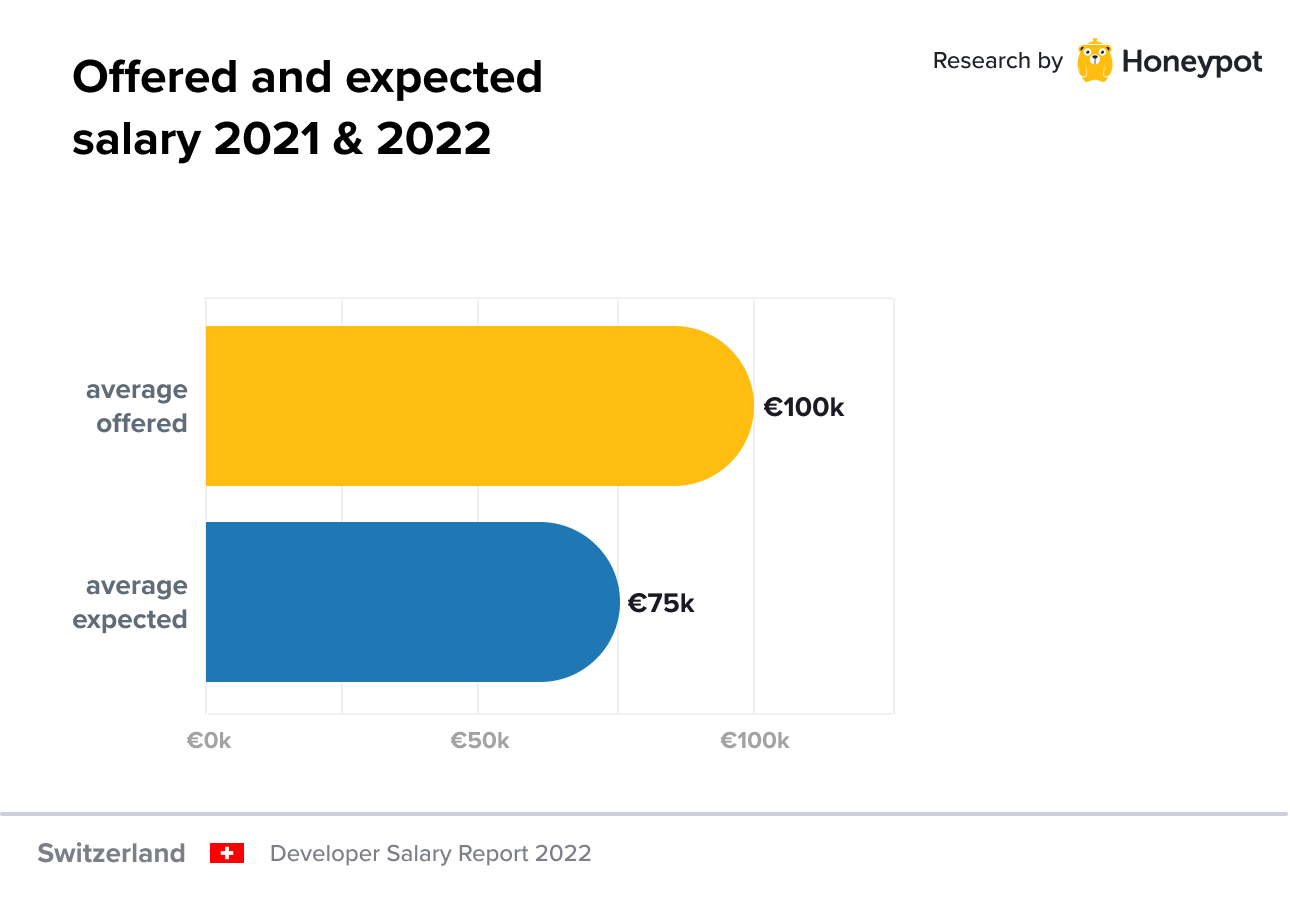
Average offered salaries in Switzerland since Honeypot launched
In Switzerland, since Honeypot launched, the average salary for developers has grown by more than 5% up to €100k. That’s what data from 2022, compared to 2021, exhibits. Also, the company count of total hiring prospects grew dramatically by 50%. If this is a trend, developers can also expect good news for next year.
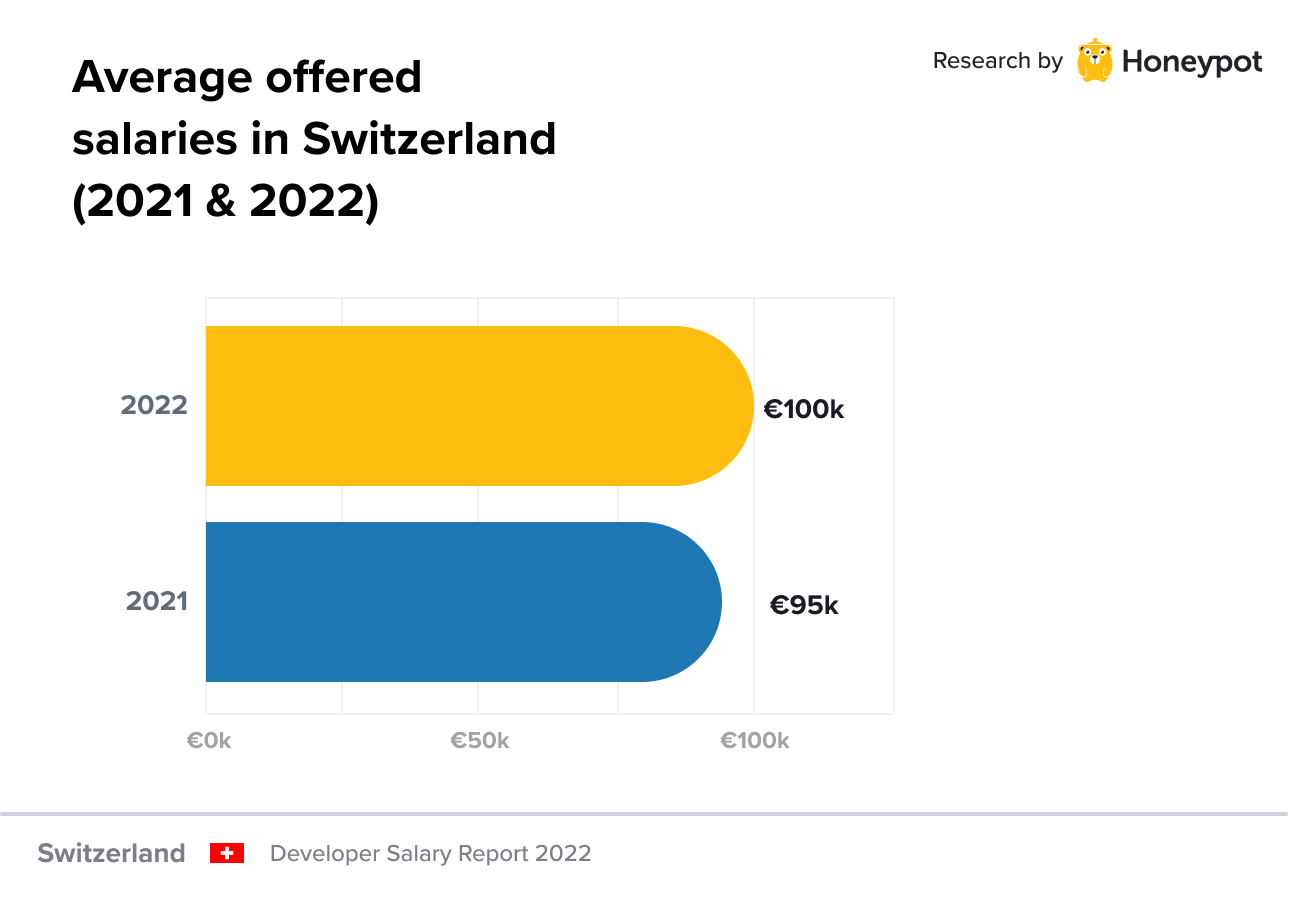
Offered salary per talent type in Switzerland for 2021 & 2022
According to our collected data, Swiss companies make bigger offers to European talent — meaning those workers that don’t require visa paperwork. Data also shows that companies make their biggest offers to fewer candidates. These outlying offers are big in compensation but low in quantity: Swiss companies seem to reserve their best paychecks for developers coming from the EU.
Workers from the rest of the world account for a tiny fraction of the offers. In contrast, Swiss natives or people based in Switzerland receive the lion’s share of the offers: they account for 90% of the total developer cap and earn a median ranging from €97,5k to €100k.
Companies in Switzerland show a preference for people speaking any of the country’s official languages (German, French, Italian, Romansh), and that detail gives the edge to native over non-native speakers.
When it comes to looking for the right place to settle, developers should keep in mind that Zurich is the city with the biggest developer pool.
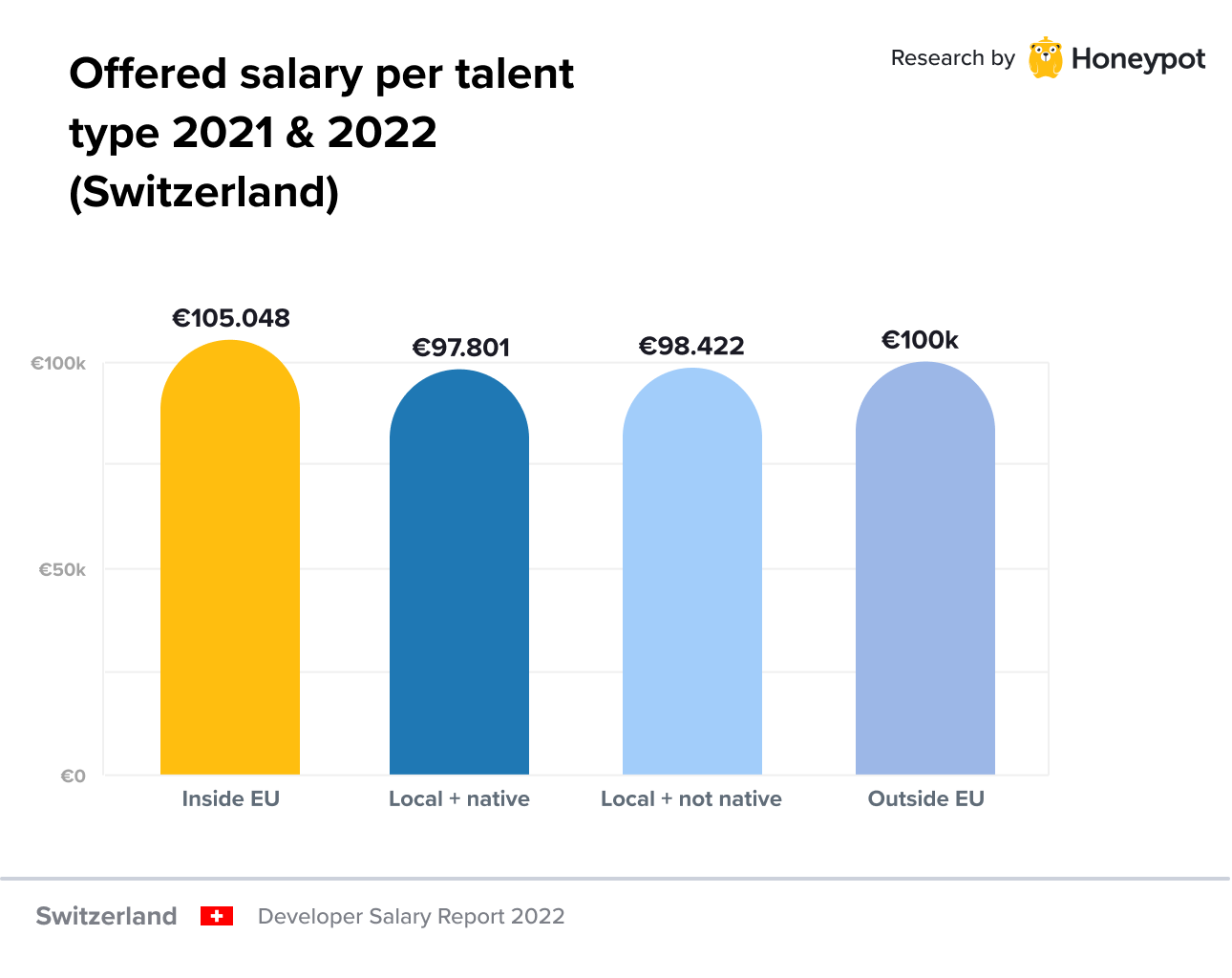
Average expected salary per years of experience and job type in Switzerland 2022
The tendency in Switzerland, it appears, is for developers to undervalue their work, only for companies to thrust them back to reality: “Your work is worth way more than what you’re telling us!”
No matter the specialisation — backend, frontend, or full-stack — or their origin, developers in Switzerland seem to expect an initial salary of between 49k and 50k. When sitting in the range of 2 to 4 years of experience, they’ll ask for a salary that might be just shy of 60k, or 10% more than that in certain cases. Only devs with more than four years of experience deem themselves worthy of annual salaries of more than 70k. What do companies do with this? We’ll get into that immediately.
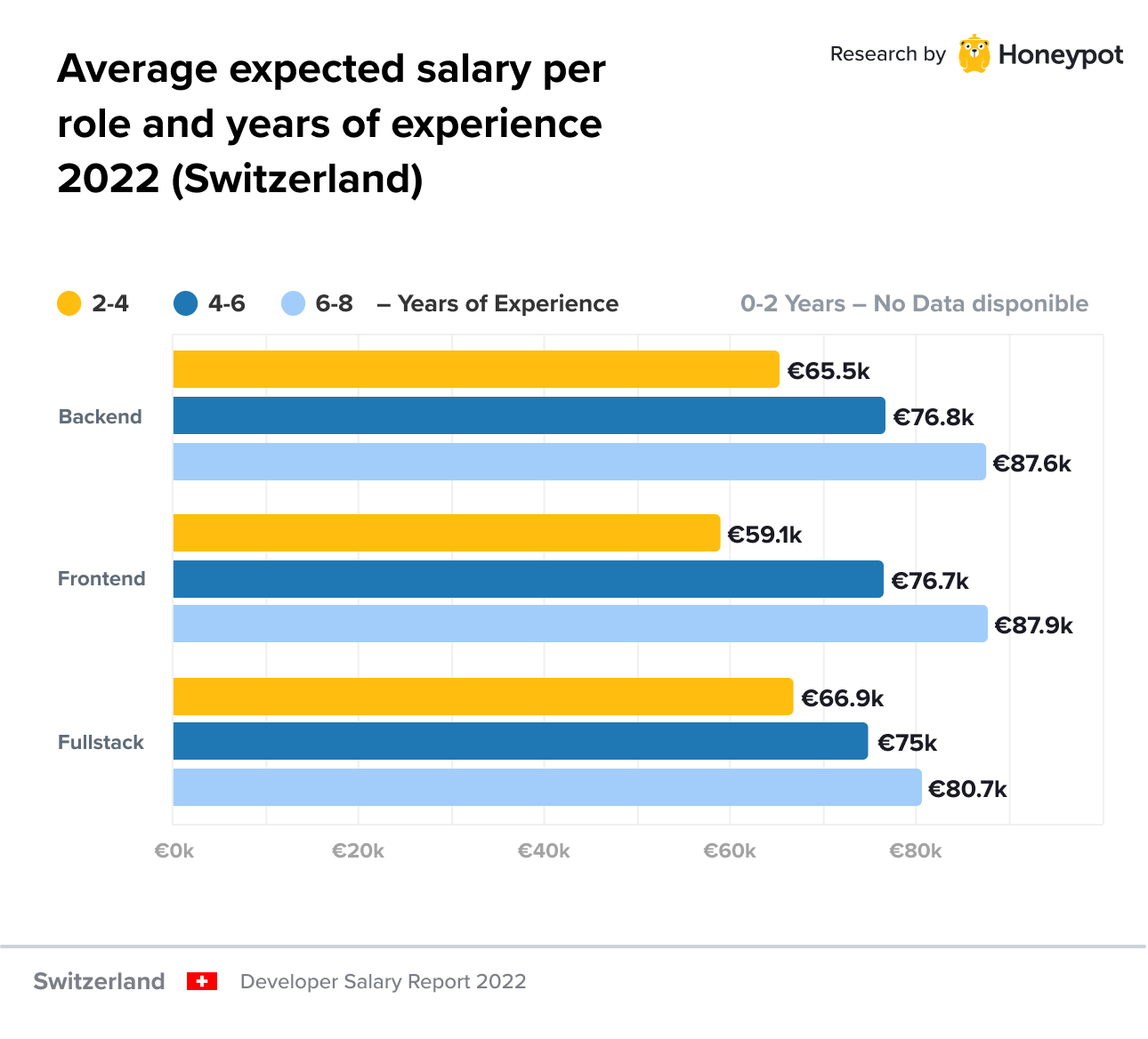
Offered salary per years of experience and job type in Switzerland
You shouldn’t be surprised by the remarkable difference between what developers expect and what companies offer them in return. As we explored before, Swiss developers — or developers working with Swiss companies — always get a better salary than what they expected in the first place. This not only happens in every talent range — it also happens regardless of the dev’s experience. The “years of experience” are a very sought-for metric for any company, and Swiss companies don’t take it lightly when defining a salary.
Swiss companies offer 20k more than what developers expect in different roles and with ranging years of experience. We see junior frontend developers being offered considerably more money than expected, close to 47k more, while backend developers experience a similar raise in their offers.
According to our data, fullstack developers are receiving lower salaries. That observation doesn’t reflect on the skills or demand for fullstack developers. Fullstack developers can work with different tech stacks. That means that smaller companies that are still growing and don’t have the budget to support many roles are usually the ones that look for fullstack developers. Their “jack of all trades” quality means “reduced costs” for smaller companies and startups. This however also means that fullstack developers are amongst the most in-demand roles for startups.
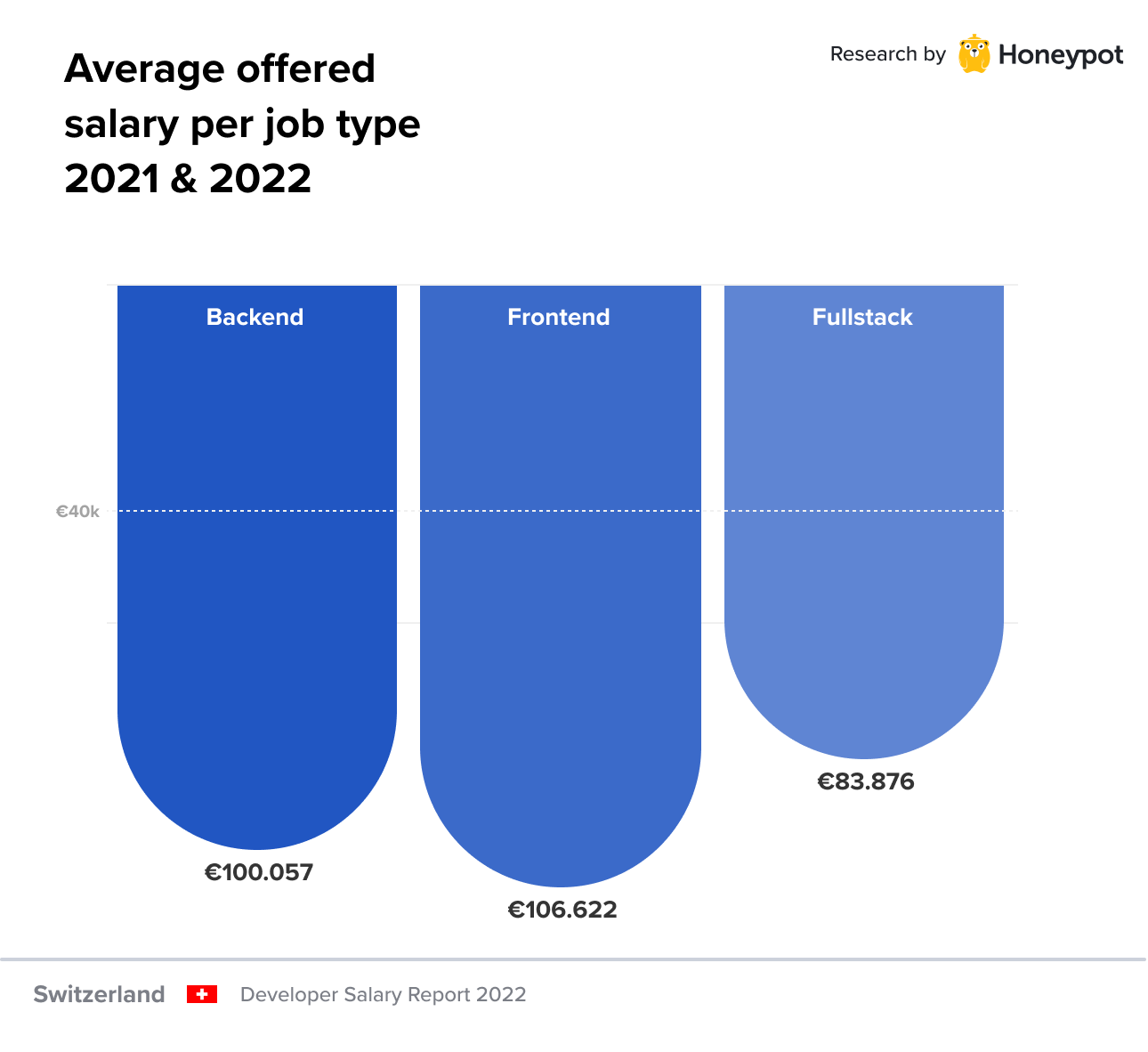
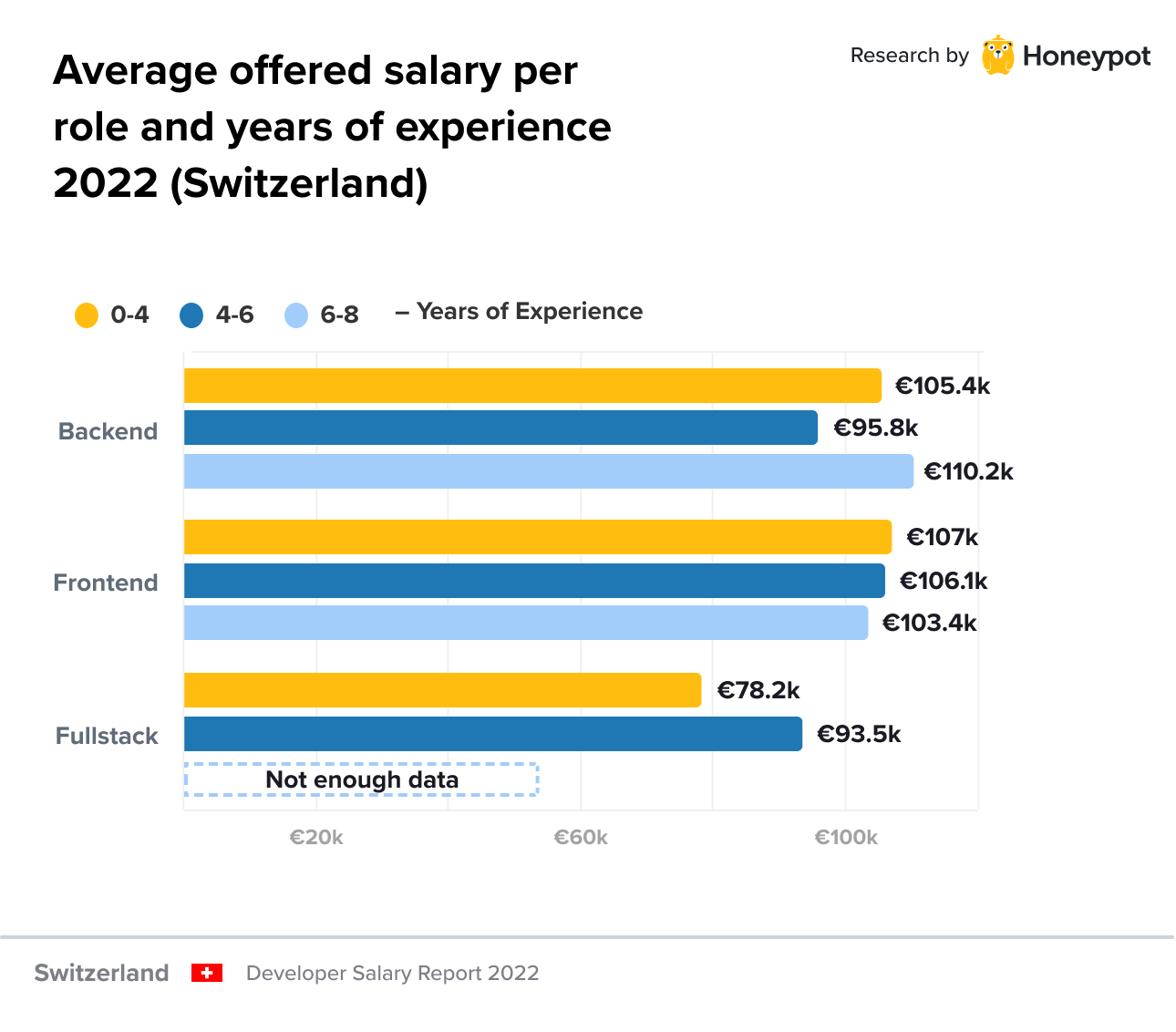
Most in-demand technologies in Switzerland
From all the candidates that received an interview invite in Switzerland during 2022, which were the most-in-demand technologies? Java leads the race, with almost 6% of all interview invitees claiming it was their top tech. Switzerland is a country with an exceptionally high number of large long-established corporations. That means that these sorts of companies have a greater need and demand for backend developers who use Java. But 6% is just over one-twentieth of the total tech cake, and developers with more than one tech under their belt might compound their chances quite neatly. For that case, React contributed to almost 4% of all interviews, and Node.js another 3%.
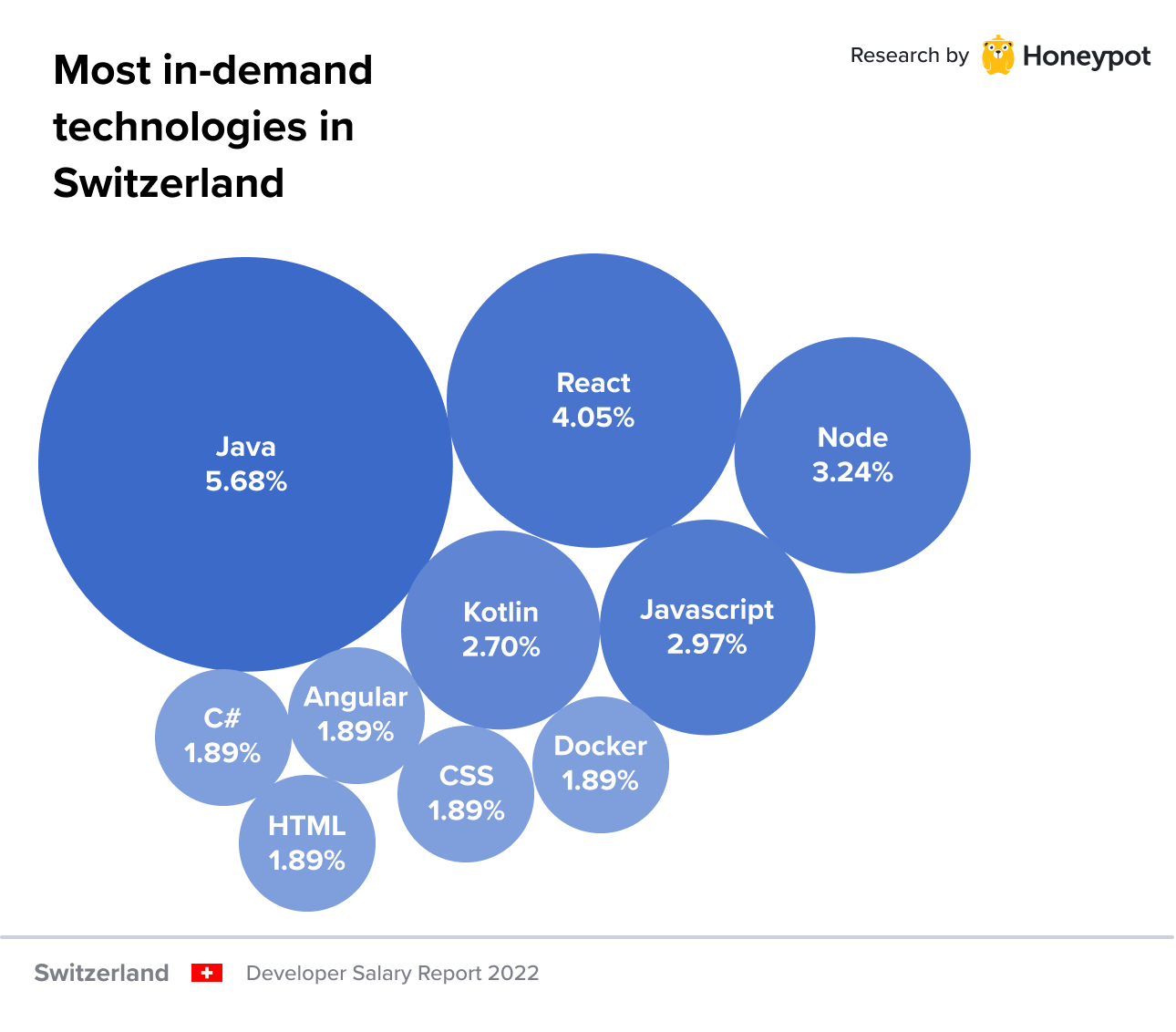
Interview invites by talent group in Switzerland
We’ve already observed how European developers get the biggest offers in Switzerland — but even these offers are scarce. Data on interview invites confirm this trend: out of all the invites for interviews during 2022, European developers got less than 10%. The preferred demographic was the local and native developer group, which landed more than 70% of total interview invites. The rest of the invites were divided between developers from outside the EU, and local, not-native speaking developers.
Switzerland has always been a top choice for developers when it came to relocating. However, Covid-19 has brought forth big changes in the way people in tech work. Developers are now less inclined to relocate, and if Swiss companies want to stay ahead of the curve, they need to start looking for “near-shore talents”. Tech talents who live close by and can easily commute to the office whenever it’s needed.
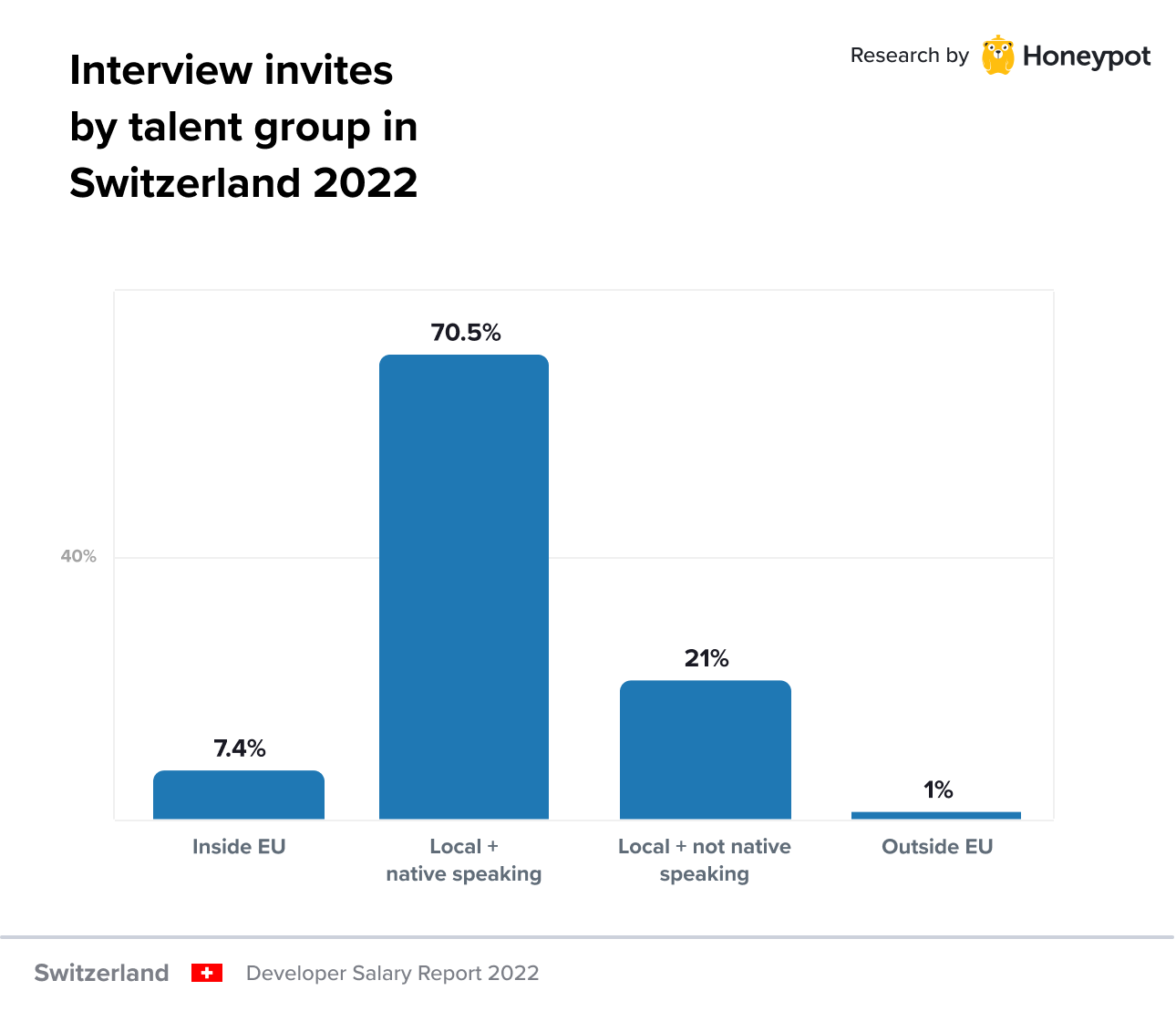
Methodology and Conclusions
We used salaries specified by hiring companies during the interview process on the Honeypot platform as our key data source.
We removed interview invites sent with missing information (like position title or company location) to ensure that the data can be compared consistently. Furthermore, we took out unusually low or high salaries to eliminate extreme outliers.
We hope you have a better idea of developer salaries in Switzerland. Don’t miss out on our other reports — we’re exploring dev salaries in different parts of Europe. Sign up for our fabulous newsletter for more reports, videos, interviews, and insights.


